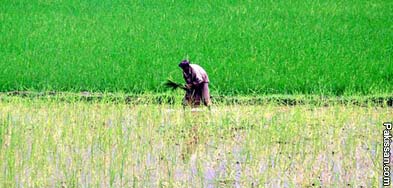Over 108 senior agricultural scientists are being
denied their rightful entitlement for the grant of one pre-mature increment on
up-gradation. These scientists working under different directorates of the
research wing of the agriculture department of Punjab in a signed application
have demanded implementation of the same policy as it has been adopted for a
civil servant, which was issued by finance department Punjab for the grant of
one special advance increment in their up-graded pay scale with effect from
September 1, 20017.
They
regretted that despite the directives of the Governor and Chief Minister of
Punjab regarding grant of one pre-mature or one special advance increment to
the aggrieved class of senior agricultural scientists on their up-gradation
with
effect
from February 2009, they are being denied the benefit. These directives,
however, have proved ineffective as the request in this connection by the
administrative department (agriculture department) was declined by the finance
department in March 2012 without mentioning any reason or quoting any lawful
reference, which according to agricultural scientists, is clear violation of
articles 4 and 25 of the constitution of Pakistan which related to the
principle of equality and uniform policy of equal protection.
Lawfully,
this decision of disapproval taken by the finance department has no legal
value, they said.
The plea
for entitlement of the said relief had also been decided by the Supreme Court
of Pakistan while delivering a judgement on January 28, 2002 passed in appeal
no. 637 of 1998 that up-gradation is tantamount to promotion.
In the
light of these orders, Federal Service Tribunal (FST), Lahore had also given a
judgement in November 2011 in a similar appeal. Relying on the Supreme Court's
judgement, the FST had directed the respondents to grant one pre-mature
increment on up-gradation.
Agricultural
scientists have pointed out that in compliance of FST directives, finance
division, Islamabad had in May 2012 given its concurrence to the grant of
pre-mature increment on up-gradation to the successful litigant in the
aforementioned appeals.
The
claim of the said aggrieved class of agricultural scientists is the same. The
same view on this law point had been followed by the FST.
On
up-gradation of the said cadre posts in different wings of the agriculture
department, these agriculture scientists were also upgraded, accordingly, their
pay was made by respective district accounts officers in such a manner that the
substantive pay as well as special pay of agricultural scientists was fixed
only against the stage of grade-18 without allowing them the benefit of one
pre-mature increment in their up-graded pay scale (BS-18) with effect from the
date of up-gradation, ie February 17,
2009.
These
agricultural scientists are well experienced researchers of the agriculture
department. They were promoted earlier in the supervisory cadre posts (BS-17 +
Rs 150/- pm as special pay which were later up-graded into BS-18 cadre posts
w.e.f February 17, 2009.). They have worked and executed their important
administrative responsibilities and made valuable contribution in the
implementation of massive investment research plans developed for the
evolvement of production technologies for different food and fibre crops by
mobilising the land, water and crop genetic resources for achieving the noble
goals of sustainable economic development and to bring a revolution towards
then
prosperity
of the country.
In view
of the hardships of senior agricultural scientists in terms of incurring
pecuniary losses, they have appealed that necessary orders be issued for grant
of one pre-mature increment/or one special advance increment to the aggrieved
class of
scientists.
Courtesy Business Recoder










.jpg)